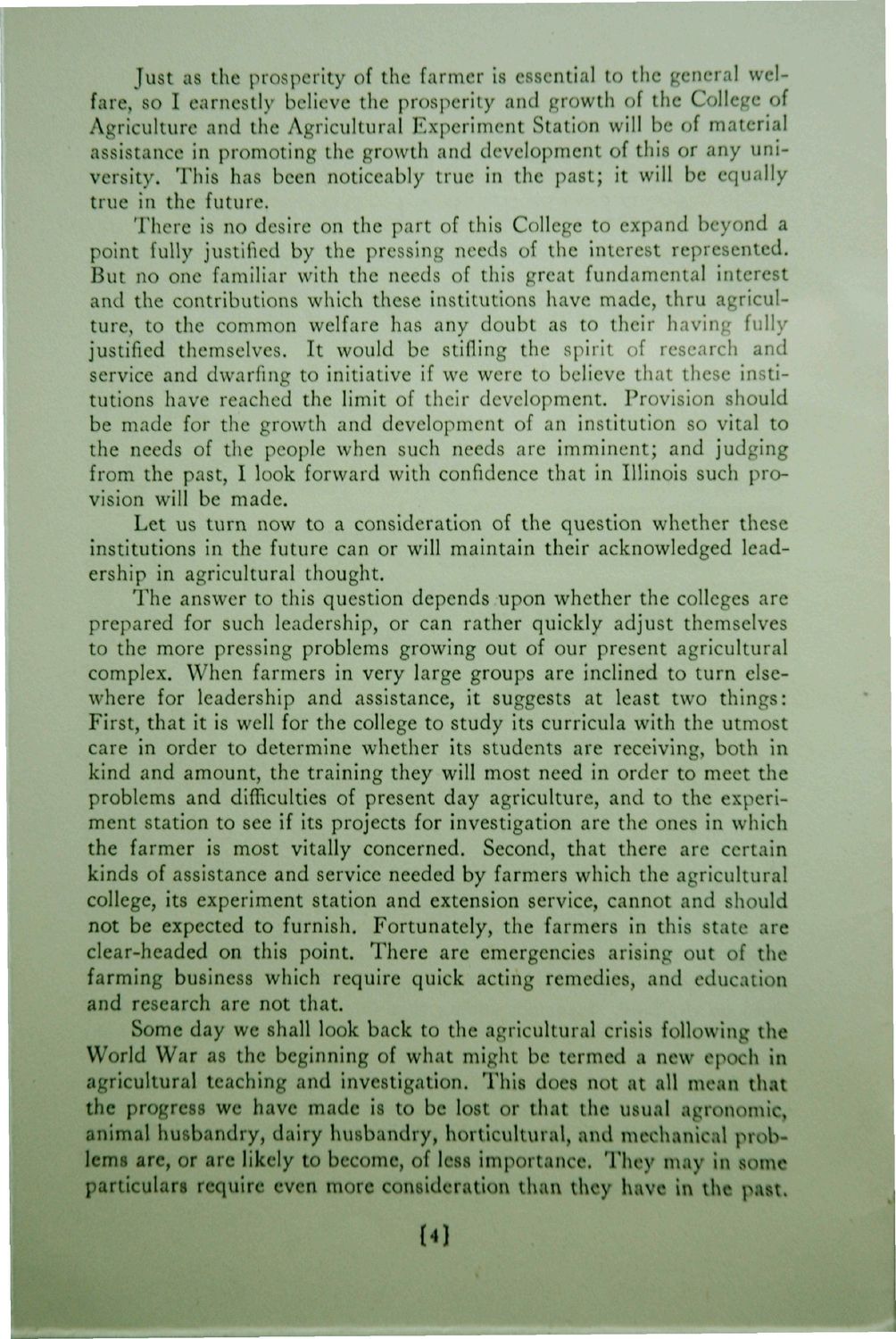| |
| |
Caption: Dedication - New Ag Building Speech
This is a reduced-resolution page image for fast online browsing.

EXTRACTED TEXT FROM PAGE:
Just as the prosperity of the farmer is essential to the general welfare, so I earnestly believe the prosperity and growth of the College of Agriculture and the Agricultural Experiment Station will be of material assistance in promoting the growth and development of this or any university. This has been noticeably true in the past; it will be equally true in the future. There is no desire on the part of this College to expand beyond a point fully justified by the pressing needs of the interest represented. But no one familiar with the needs of this great fundamental interest and the contributions which these institutions have made, thru agriculture, to the common welfare has any doubt as to their having fully justified themselves. It would be stifling the spirit of research and service and dwarfing to initiative if we were to believe that these institutions have reached the limit of their development. Provision should be made for the growth and development of an institution so vital to the needs of the people when such needs are imminent; and judging from the past, I look forward with confidence that in Illinois such provision will be made. Let us turn now to a consideration of the question whether these institutions in the future can or will maintain their acknowledged leadership in agricultural thought. The answer to this question depends .upon whether the colleges are prepared for such leadership, or can rather quickly adjust themselves to the more pressing problems growing out of our present agricultural complex. When farmers in very large groups are inclined to turn elsewhere for leadership and assistance, it suggests at least two things: First, that it is well for the college to study its curricula with the utmost care in order to determine whether its students are receiving, both in kind and amount, the training they will most need in order to meet the problems and difficulties of present day agriculture, and to the experiment station to see if its projects for investigation are the ones in which the farmer is most vitally concerned. Second, that there are certain kinds of assistance and service needed by farmers which the agricultural college, its experiment station and extension service, cannot and should not be expected to furnish. Fortunately, the farmers in this state are clear-headed on this point. There are emergencies arising out of the farming business which require quick acting remedies, and education and research are not that. Some day we shall look back to the agricultural crisis following the World War as the beginning of what might be termed a new epoch in agricultural teaching and investigation. This does not at all mean that the progress we have made is to be lost or that the usual agronomic, animal husbandry, dairy husbandry, horticultural, and mechanical problems are, or arc likely to become, of less importance. They may in some particulars require even more consideration than they have in the past. {<)
| |